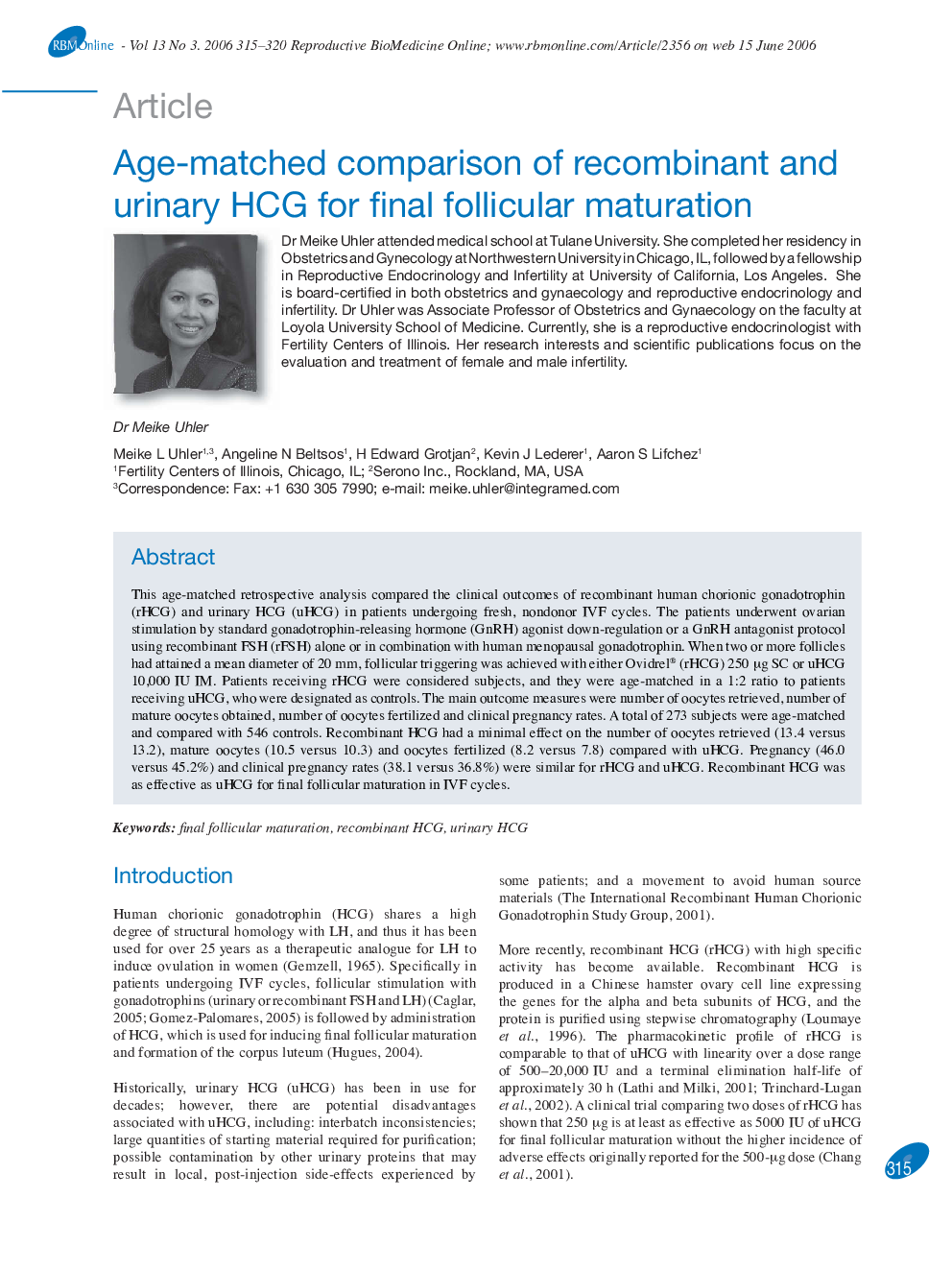| Article ID | Journal | Published Year | Pages | File Type |
|---|---|---|---|---|
| 3971875 | Reproductive BioMedicine Online | 2006 | 6 Pages |
This age-matched retrospective analysis compared the clinical outcomes of recombinant human chorionic gonadotrophin (rHCG) and urinary HCG (uHCG) in patients undergoing fresh, nondonor IVF cycles. The patients underwent ovarian stimulation by standard gonadotrophin-releasing hormone (GnRH) agonist down-regulation or a GnRH antagonist protocol using recombinant FSH (rFSH) alone or in combination with human menopausal gonadotrophin. When two or more follicles had attained a mean diameter of 20 mm, follicular triggering was achieved with either Ovidrel® (rHCG) 250 μg SC or uHCG 10,000 IU IM. Patients receiving rHCG were considered subjects, and they were age-matched in a 1:2 ratio to patients receiving uHCG, who were designated as controls. The main outcome measures were number of oocytes retrieved, number of mature oocytes obtained, number of oocytes fertilized and clinical pregnancy rates. A total of 273 subjects were age-matched and compared with 546 controls. Recombinant HCG had a minimal effect on the number of oocytes retrieved (13.4 versus 13.2), mature oocytes (10.5 versus 10.3) and oocytes fertilized (8.2 versus 7.8) compared with uHCG. Pregnancy (46.0 versus 45.2%) and clinical pregnancy rates (38.1 versus 36.8%) were similar for rHCG and uHCG. Recombinant HCG was as effective as uHCG for final follicular maturation in IVF cycles.
